Description
ABSTRACT
A Review of the Nigerian Law and Practice on Perfection of Charges
Ayodele Ashiata Kadiri*
Generally, stamping and registration of a charge created over a company’s assets are relevant for the enforcement and the preservation of priority of any security interests created under Nigerian law. This process is called “perfection”. The goal of this article is to (i) provide at a glance what the perfection process entails, (ii) identify issues that are thrown up by the laws applicable to the perfection process, (iii) discuss and/or resolve some of the aforementioned issues. The article also examines how affected parties have been able to balance commercial concerns around the high cost of perfection and legal risks of failure to comply. The discourse would be incomplete without an examination of the impact of some recently enacted statutes on the perfection procedure.
Keywords: Charges, Perfection, Stamping, Registration.
INTRODUCTION
It is not unusual for a borrower to create security over its1 assets to secure its repayment obligations to a finance party (a lender or group of lenders). Security can be created over a company’s assets or individual by way of charge, pledge, lien or mortgage. Under Nigerian law, in addition to the creation of such security interest by the execution of the relevant documents, the law prescribes steps that must be taken by the borrower and/or the secured lender(s) to “perfect” the security. Failure to “perfect” these security interests may have severe repercussions for the lender, especially in the event of the borrower’s insolvency. Such “unperfected” security for corporate entities will generally be void against the liquidator and other creditors.
The requirements for the perfection of any security largely depends on the nature of the assets over which it is created (moveable or immoveable asset), location and, in some cases, the identity of the chargor. However, our focus is on the general perfection requirements a company creating security over its assets would be statutorily required to meet – stamping and registration over movable and immovable assets.2 Due to the cost and other commercial implications of “perfection”, borrowers and lenders continue to find creative ways to strike a balance between commercial realities and compliance with applicable laws. We discuss a couple of these balance-striking mechanisms. The administration of the laws applicable to the perfection of charges by the relevant regulators also forms part of the discourse in this article.
* Associate at G. Elias & Co, a leading commercial law firm in Nigeria.
- A company may secure its obligations as a borrower through security created over a third party’s assets. Where, for instance, a company is a subsidiary-member of the group, a parent-member of the group may advance security over its assets to secure the obligations of that subsidiary-member of the group.
- The discussion in this article will not extend to ship and aircraft.

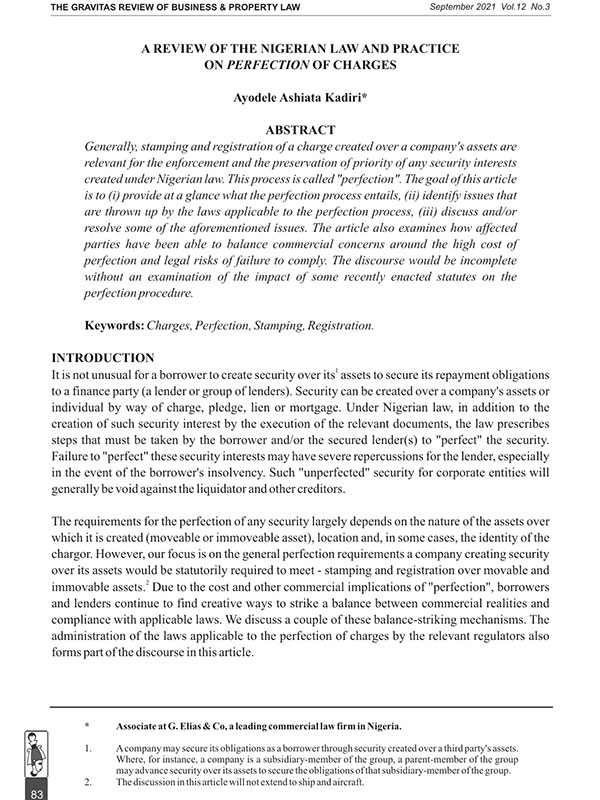
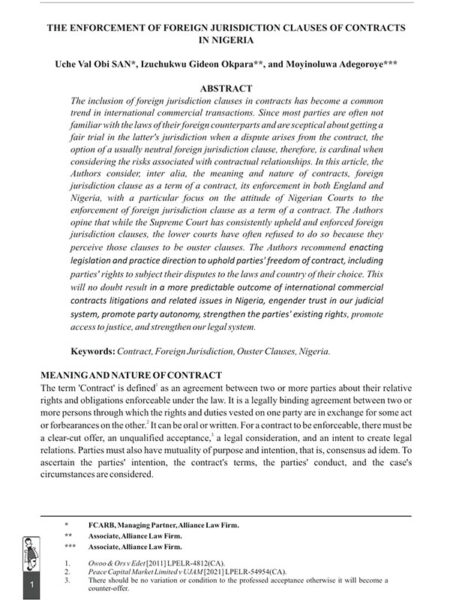
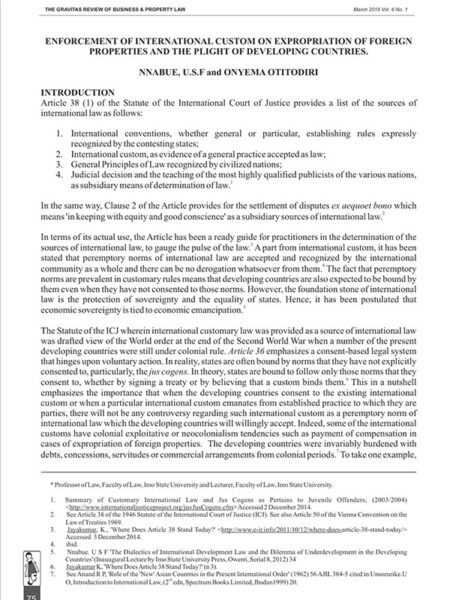
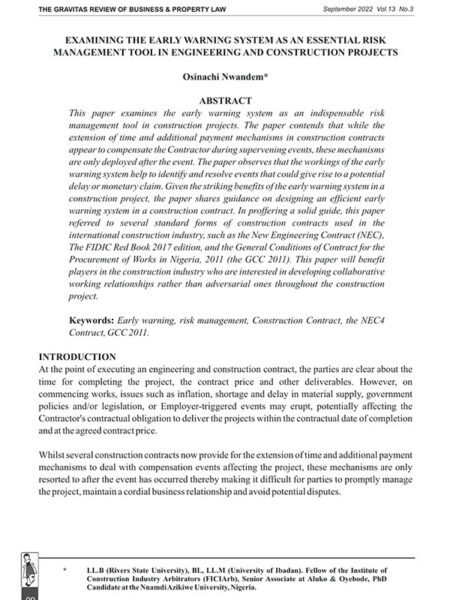
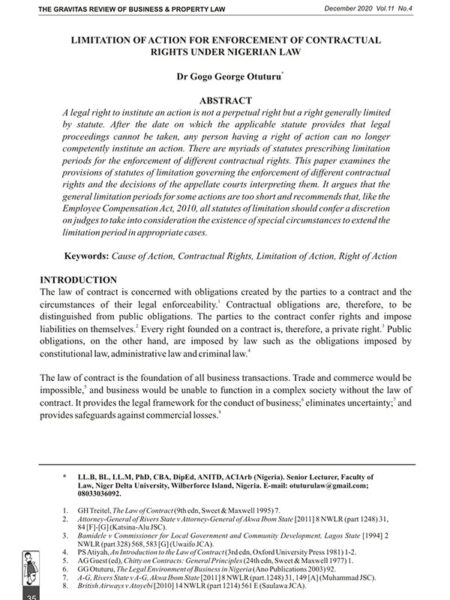


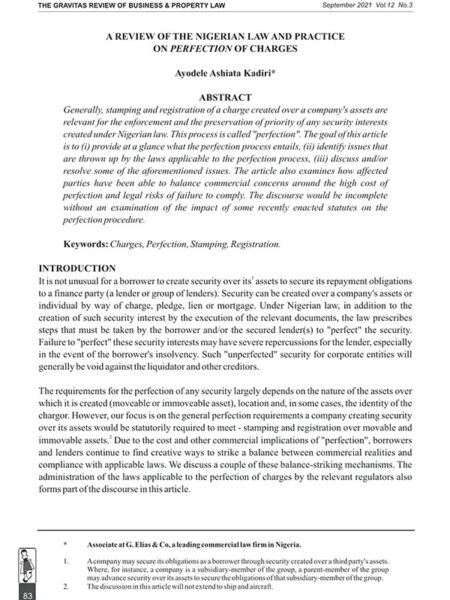
Reviews
There are no reviews yet.